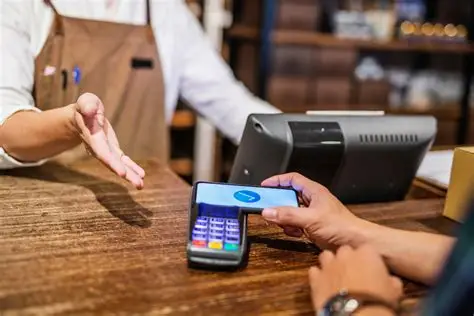When it comes to qualifying, merchant cash advance requirements don’t really differ from each lender it really boils down to two core things: your monthly sales volume, how long you’ve been in business. Unlike a traditional bank loan, the real star of the show here is your daily revenue, there’s no focus on you’re personal credit score – This focus is what makes MCAs an option even for business owners whose credit isn’t spotless.
It helps to think about qualifying for a merchant cash advance (MCA) differently than you would a standard loan. Instead of borrowing money, you’re essentially selling a percentage of your future sales to get a lump sum of cash right now enabling seasonal growth or just cash flow.
Because of this unique structure, the funder is making a bet on your business’s ability to consistently bring in revenue. The merchant cash advance requirements are therefore built to measure one thing above all else: your proven ability to generate steady sales, so basically they’re betting on you being a future success.
Think about traditional option via high street institutions, digging into personal credit history & scores, demand collateral, and want to see a comprehensive business plan. For an MCA, the questions are much more direct:
- Does your business have a history of predictable sales?
- Have you been operating long enough to show a reliable sales pattern?
- Is your daily cash flow strong enough to handle the repayments without causing stress to the business model?
Do your figures stack up?
Does your business stack up? While every merchant cash advance provider has its own specific criteria most merchant cash advance requirements are similar. A business that comfortably clears the minimum amounts requires is seen as a lower risk partner, this in turn leads to better offers, larger advance amounts and more competitive interest rates.
Key Takeaway: The single most important factor is your business’s daily, weekly and monthly sales volume. If you have strong, consistent revenue, it can often make up for other areas that might be weaker, like a shorter time in business or a less-than-perfect credit score.
What Is a Merchant Cash Advance, Really?

How easy is it to get approved, we need to get to the bottom of what a merchant cash advance actually is. An MCA isn’t a loan in the traditional sense, you’re borrowing against future revenue!
Think of it this way: imagine you’re a publican who needs cash today to buy stock for the seasonal rush. Instead of taking out a loan, you sell a small piece of that future revenue to a funding company – You get the money you need now, and the investor gets a share of your future sales.
In this scenario, your business’s future credit and debit card sales are the asset that secures the advance, the MCA provider gives you a lump sum of advance and in return, they get an agreed-upon percentage of your daily card sales until the advance is settled.
This is the key difference, and it’s why the requirements for an MCA are so different from a bank loan. A bank is obsessed with your ability to make fixed monthly payments, no matter what. An MCA provider cares about one thing above all else: the health and consistency of your sales.
How an MCA Works in Practice
The whole system boils down to two main components: the advance amount and the retrieval rate. The advance is the cash you get upfront. The retrieval rate, is the percentage of your daily card sales that the provider automatically takes to repay that advance.
For instance, let’s say your holdback rate is 10%. On a great Monday, you bring in £2,000 through card sales. The MCA provider gets £200. But if Tuesday is slow and you only make £500, they only get £50. This flexible payment is the defining feature of a merchant cash advance!
This repayment model peaks and troughs with your sales, you pay back more on good days and less on slow days, which helps protect your cash flow from the pressure of a big, fixed payments you can’t afford.
This is exactly why MCA providers are so focused on your sales history. Your past performance is the best crystal ball they have for predicting your future revenue, making it their number one tool for lending. To get a better feel for MCAs, it’s useful to see how they stack up against other types of small business loans.
Why Quick Flexible Funding Is Gaining Ground
The MCA model has become a lifeline for many small and medium sized businesses, retail or entertainment industry that need cash fast without having to rely on traditional banking options. The market for MCAs was recently valued at around £500 million annually and is expected to grow to rapidly, largely because more customer facing businesses are taking card payments and need a quick access to takings via card payments.
Once you understand the structure of this financial product it’s easier to weigh the pros and cons of a merchant cash advance. It all comes down to sales volume, which is why the application process is built around your revenue stream.
What It Really Takes to Get Approved
Applying for a merchant cash advance is more like a traditional loan application but really more like a health check for your business’s cash flow. Lenders aren’t interested in looking through years of your financial history. Simply. they’re focused on a few key pieces of information that tell them one thing – can your business model and future sales comfortably repay the advance?
Different from traditional lenders in the way they process that information, they’re far less concerned with what you own and much more interested in what you consistently earn and turnover.

Your Businesses Vital signs, and nothing is more important than your revenue. Below are the key points of merchant cash advance requirements a successful application relies on.
Your Time in Business
First, how long you’ve been operating. A business with several years of history is seen as more stable and predictable, Most funding providers want to see you’ve been open for a minimum of 6 months, though many feel more comfortable with a year or more.
Why is this a deal breaker? A business that’s only a few months old is still an unknown quantity where one that’s been around for a year has likely navigated different sales cycles and has a reliable sales track record gives lenders the surety they need. Since the entire repayment structure is built on your future sales, providers need to know you’re generating enough cash to handle the daily or weekly payment without putting your operations in a cash poor trading situation.
Most MCA companies set a minimum monthly revenue of around £10,000. Of course, businesses pulling in higher, steadier numbers—say, £60,000 + a month are prime candidates. It’s not just about covering the advance; high turnover signals a strong customer base and real demand for what the business offers. A solid history of daily credit card sales is what they’ll use to gauge what you can borrow and comfortably afford to repay.
Poor Credit Score, No problem
Here’s where MCAs really stand apart from bank loans. A bank might see a poor credit score and immediately say no. But with an MCA, your business’s performance is the star of the show, not you.
When you’re getting ready to apply for a merchant cash advance, have all your documents in order beforehand makes the whole process smoother, faster, and keeps you from hitting any unexpected roadblocks. A complete,organized application shows providers you’re on top of your game.
Financial Documents
This is where the real story is told. These documents paint a clearer picture of your revenue and cash flow, which is exactly what funders are most interested in.
- Bank Statements: Be prepared to hand over your last 3-6 months of business bank statements. Providers will use these, looking for consistent deposits, a healthy average daily balance, and any red flags like overdrafts.
- Credit Card Processing Statements: Just like bank statements, you’ll need 3-6 months of these. This is the hard data that backs up your credit and debit card sales volume, which is crucial since that’s how an MCA is repaid. It proves you have a steady stream of card sales.
Finally, providers need to confirm who actually owns the business, this helps prevent fraud and ensure you’re authorised to take on funding.
- Government-Issued Photo ID: A clear, unexpired copy of your driver’s license or passport will do the trick.
- Bank Reference: This simple item confirms all your business bank account details. It’s a failsafe to make sure the funds land in the right account once you’re approved.
Getting these documents together and following our advice regarding the merchant cash advance requirements puts you in a better position to secure a merchant cash advance swiftly.
Once you’ve sent in your documents, the real work begins. Underwriting, It’s probably best to think of an underwriter not as a gatekeeper, but as a financial detective. Their job is to piece together the clues from your financial documents to get a clear picture of your business’s credibility and predict how it will perform in the near future.
An underwriter’s analysis goes much deeper than just looking at your total revenue. Here are the key metrics they zero in on:
- Average Daily Balance: This is a huge one. It’s a snapshot of your day-to-day cash flow management. If the borrower has a daily balance of say £2,000 in their account It shows there’s a cushion for unexpected bumps in the road. A low or erratic balance on the other hand is a serious red flag.
- Number of Deposits: It’s not just about how much money comes in, but how it arrives. Seeing 30-70 separate deposits each month is a great sign. It points to a steady stream of customers and consistent daily sales, rather than relying on one or two big deposits. MCA providers love to see consistency.
Red Flags
Underwriters are looking for good signs, they’re professionally trained to spot trouble. Certain patterns on your bank statements can weaken your application in a hurry, or even get you declined on the spot.
The biggest deal-breaker? insufficient Fund charges or overdrafts. Just one or two in the past month can stop an application in its tracks. It signals that your business is already having trouble covering its current bills, making you a risky bet for an MCA.
Common Application Mistakes to Sidestep
Knowing the full measure of merchant cash advance requirements is a great start, but it’s only half the story. I’ve seen countless business owners get the basics right, only to stumble on common application mistakes that sink their chances or land them a terrible deal. Getting these details right is how you present your business in the best possible light.
Don’t Overlook Your Bank Statement Health
MCA providers aren’t just looking at your sales totals; they’re digging into your recent banking history for any signs of trouble. A few recent overdrafts or non-sufficient funds charges can scream “risk,” even if your revenue looks fantastic on paper.
- What to Watch For: More than a couple of overdrafts in the last 90 days is a major warning sign. To a funder, it suggests you’re already having a tough time managing your cash flow.
- How to Fix It: If you can, take a month or two to get your account in order before you apply. A clean record and a healthy average daily balance show financial discipline and prove you’re ready to handle the advance.
Another classic mistake is multiple applications to every provider you can find. It feels like smart shopping, but each application can trigger a credit inquiry and a “A Scar” on your companies credit search history.
Multiple applications on your credit score and make you look desperate for cash. Lenders see this pattern and assume you’re high-risk, which often leads to worse trading terms or an outright decline.
When you’re looking into a merchant cash advance requirements, it’s natural for questions to pop up. Let’s tackle some of the most common ones I hear from business owners so you can move forward with confidence.
Can I Get a merchant cash advance if I Have Bad Personal Credit?
Yes, For most MCA providers, your personal credit score isn’t the main event; it’s more like a supporting actor.
What they really care about is the health of your business—specifically, your daily cash flow and revenue history. Strong, consistent sales can often outweigh a weak personal credit history.
Do I Need a Bricks and Mortar business to Qualify for an MCA?
Absolutely not. The idea that you need a physical storefront is a bit of an outdated myth. Today, all kinds of businesses, from booming e-commerce stores to on-the-go service providers, secure MCAs.
The core of the approval process is simply proof of revenue. It doesn’t matter if your sales come from a credit card terminal on a counter or from online payments processed through your website. As long as you can show a steady stream of income, you’re in the game.
How Fast Can I Actually Get the Money?
Speed is where the MCA really shines. Once you’ve submitted all your documents and gotten the green light, the funding process moves at lightning speed.
Most business owners see the capital hit their bank account in as little as 24 to 72 hours. This is a world away from the weeks or even months you might wait for a traditional bank loan to come through.
Ready to see what your business qualifies for? At Quick Business Loans, we offer clear guidance and fast, flexible funding solutions to help you grow. Explore your options today.

